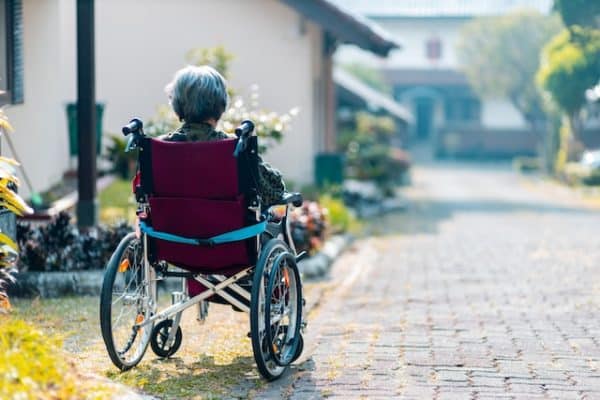As your parent gets older, it can be challenging to witness their decline in capabilities. Admitting that they may need more help and support can be difficult for both them and their adult children. However, recognizing the signs that your elderly parent requires in-home care is crucial for ensuring their safety, well-being, and quality of life.
Elderly Parent Shows These Signs
Confusion and Forgetfulness: As people age, occasional forgetfulness is natural, but when it becomes more frequent and significant, it may indicate a problem. If your elderly parent starts getting confused about their whereabouts or forgets to perform essential tasks like turning off appliances or locking doors, it can pose serious risks to their safety. In-home care can provide the necessary supervision and support to ensure they are safe and well-taken care of.
Declining Personal Hygiene: Personal hygiene is essential for maintaining physical health and emotional well-being. If you notice that your elderly parent neglects their personal grooming, such as infrequent bathing or not changing clothes regularly, it could be a sign of underlying issues. In-home caregivers can help with daily tasks like bathing, dressing, and grooming, ensuring your loved one maintains their dignity and health.
Changes in Eating Habits and Nutrition: If your parent’s eating habits have noticeably changed, leading to significant weight loss or malnutrition, it may signal difficulties in preparing meals or buying groceries. In-home care can address these concerns by providing assistance with meal planning, cooking, and ensuring proper nutrition for your loved one.
Untidy and Cluttered Home: An unkempt living environment can be hazardous for elderly individuals, increasing the risk of falls and accidents. If you notice that your parent’s home is becoming untidy or basic household tasks are being neglected, it may be time to consider in-home care. Caregivers can help maintain a safe and clean living space, reducing the risk of accidents and promoting a comfortable living environment.
Financial Challenges: Struggling to manage finances and unpaid bills can be a red flag that your elderly parent is facing cognitive decline or confusion. In-home caregivers can assist in managing finances, ensuring bills are paid on time, and safeguarding against potential financial exploitation.
Mood and Behavioral Changes: Significant shifts in mood and behavior, such as increased agitation, withdrawal, or neglecting personal responsibilities, may indicate underlying health issues or emotional distress. In-home caregivers provide companionship and emotional support, which can improve your loved one’s well-being and reduce feelings of isolation or loneliness.
When you observe these signs, addressing your parent’s needs promptly is crucial. In-home care services offer personalized and flexible support, enabling your loved one to age in place comfortably.

Benefits of in-home care:
Independence and Comfort: In-home care allows your elderly parent to maintain their independence and live in the comfort of their own home. Familiar surroundings can have a positive impact on their emotional well-being and overall happiness.
Personalized Care Plans: Professional caregivers, such as the ones at Comforting Home Care by Phoebe, develop personalized care plans tailored to your parent’s unique needs and preferences. These plans encompass assistance with daily activities, medication reminders, mobility support, and more.
Companionship and Social Interaction: In-home caregivers provide much-needed companionship and social interaction, reducing feelings of loneliness and isolation, which are common among seniors.
Peace of Mind for Family: Knowing that your elderly parent is receiving expert care at home provides peace of mind for family members, especially those who may live far away or have other commitments.
Respite for Family Caregivers: If you have been taking on the role of a family caregiver, in-home care can offer much-needed respite, allowing you to take breaks and tend to your own well-being while ensuring your loved one receives continuous care.
Flexibility and Adaptability: In-home care services can be adjusted based on your parent’s evolving needs, ensuring they receive the right level of support at all times.
Home Safety and Fall Prevention: Professional caregivers are trained to identify potential hazards and implement measures to enhance home safety, reducing the risk of falls and accidents.
Enhanced Healthcare Coordination: In-home caregivers can work in collaboration with healthcare professionals to ensure your parent’s medical needs are met and appointments are attended.
Engagement in Activities: Caregivers can engage your parent in stimulating activities, promoting mental and emotional well-being.
As you explore in-home care options, consider involving your parent in the decision-making process to maintain their sense of autonomy. Discuss the benefits of in-home care and the ways it can enhance their quality of life. Additionally, consult with healthcare professionals and reputable home care agencies to find the best fit for your parent’s needs.

In conclusion, recognizing the signs that your elderly parent needs in-home care is vital for their safety and overall well-being. Addressing these signs promptly and compassionately can significantly improve their quality of life and provide peace of mind for you and your family. In-home care offers personalized support, enabling your parent to age in place comfortably while receiving the assistance they require to thrive. Embrace the opportunity to enhance your parent’s golden years by choosing in-home care that promotes their independence, safety, and happiness.





